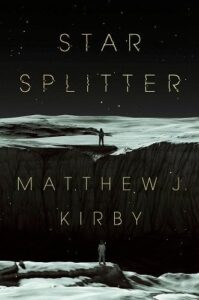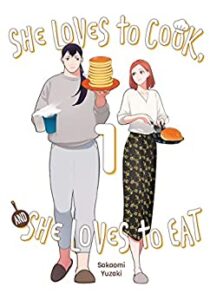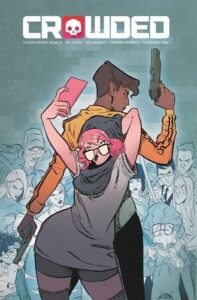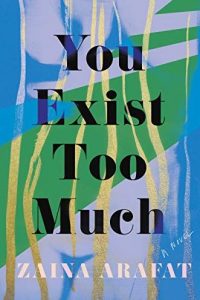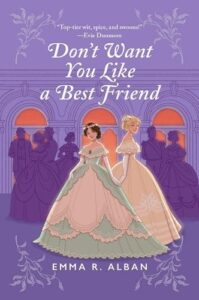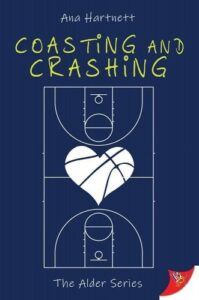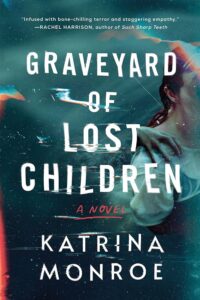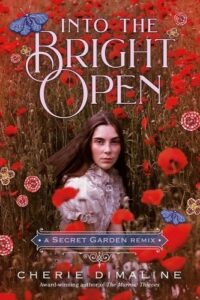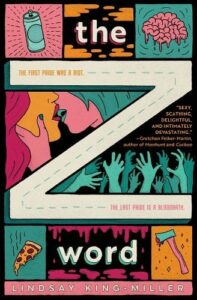
Buy this from Bookshop.org to support local bookstores and the Lesbrary!
I was so excited to pick this up. I read Eat Your Heart Out by Dayna Ingram more than 10 years ago (!) and I’ve been searching for a similar fun and gory sapphic zombie adventure ever since. At first, I thought I’d found it with this, but I couldn’t suspend my disbelief enough at the ending to recommend The Z Word. Something about me as a reader is that I can hang with almost any weird premise and will sail over plot holes without hesitation, but I care deeply about characterization, and that’s where this one fell short for me.
Wendy is a messy bisexual main character who is still mooning after her ex-girlfriend, Leah. Leah broke up with her because Wendy cheated, but Wendy was sure Leah was about to break up with her anyway. I could definitely see why Wendy was obsessed with Leah: she’s a fat, confident activist who is at the center of the queer community in their city and is always working to try to improve things. All the sapphics seems to be at least a little in love with her.
In a scenario most of us can relate to, Wendy keeps running into her ex at Pride. Leah is working with an alcohol company who is sponsoring Pride and funding an LGBTQ health center, so she’s at the center of the festivities. Wendy is determined to make a showing at Pride, even though it’s painful to see Leah… especially because Leah is sleeping with their mutual friends, a married polyamorous F/F couple.
During one of these Pride parties, the zombification begins, and Wendy, Leah, and some of their friends try to survive the night together. I have no complaints about the absurdity of the zombie plotline, even when it involves a pizza delivery driver so dedicated to their work that they equip their vehicle to mow down zombies. I guessed the cause of the zombie outbreak early on, and while it’s obviously not realistic, it’s a fun and relevant metaphor. I think excessive gore and flimsy reasoning is perfectly valid—even encouraged!—in a zombie book.
No, where The Z Word lost me was characterization. This is impossible to describe without spoiling a major plot point, so highlight to read. It turns out that not only is the alcohol company responsible for starting the outbreak (called it), but it was deliberate, and Leah knew about it. I can see what the book was trying to do in terms of making Leah complicit and showing the dangers of her white saviorism, but the specifics of it lost me. Leah knew that the drinks would make people violent, and she thought it was okay because it would be… good publicity that would help raise money for the health center? That reasoning is so strange, and I just don’t understand how she could justify it to herself. You’re basically talking about drugging people at Pride to make them violent. That’s not morally grey, that’s supervillain stuff. I don’t see how that lines up with the Leah who thinks of herself as a great activist. Then you combine it with a scene where we learn that Leah would leave her friends to die while she had the antidote just to avoid being found out. And somehow, Wendy still forgives her! If Leah was meant to be a supervillain all along, I don’t understand how her prior characterization lines up with that. I could see Leah as pushy, overly confident of her own worldview, and having a savior complex (tied up with her whiteness), but not as someone who would agree to drug people to make them violent and who would watch her friends die a preventable death in front of her.
It just didn’t make sense to me, and leaving it on that note soured the whole reading experience, unfortunately. I can see what the book was trying to do, but it didn’t come together for me.

